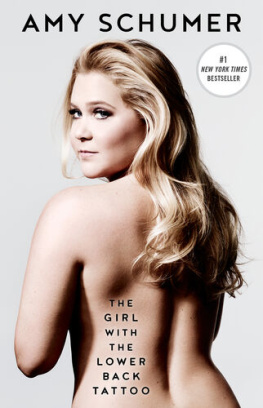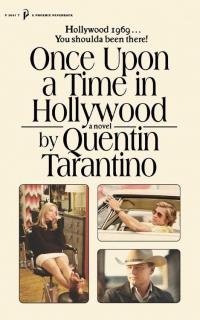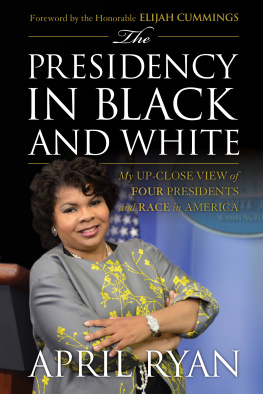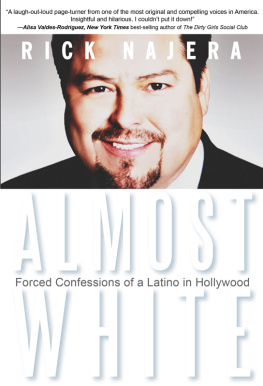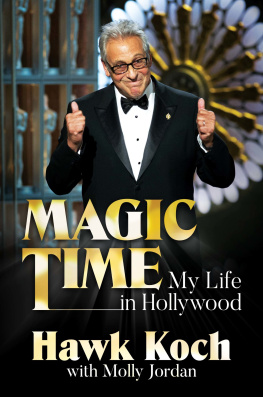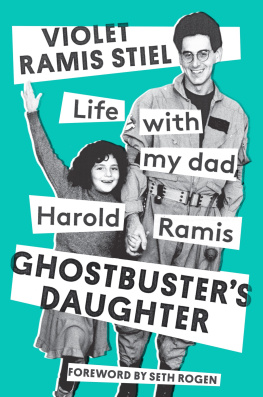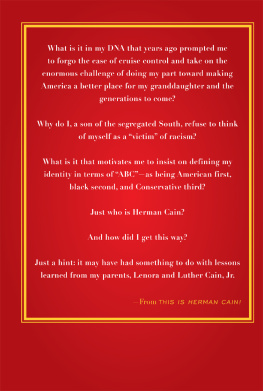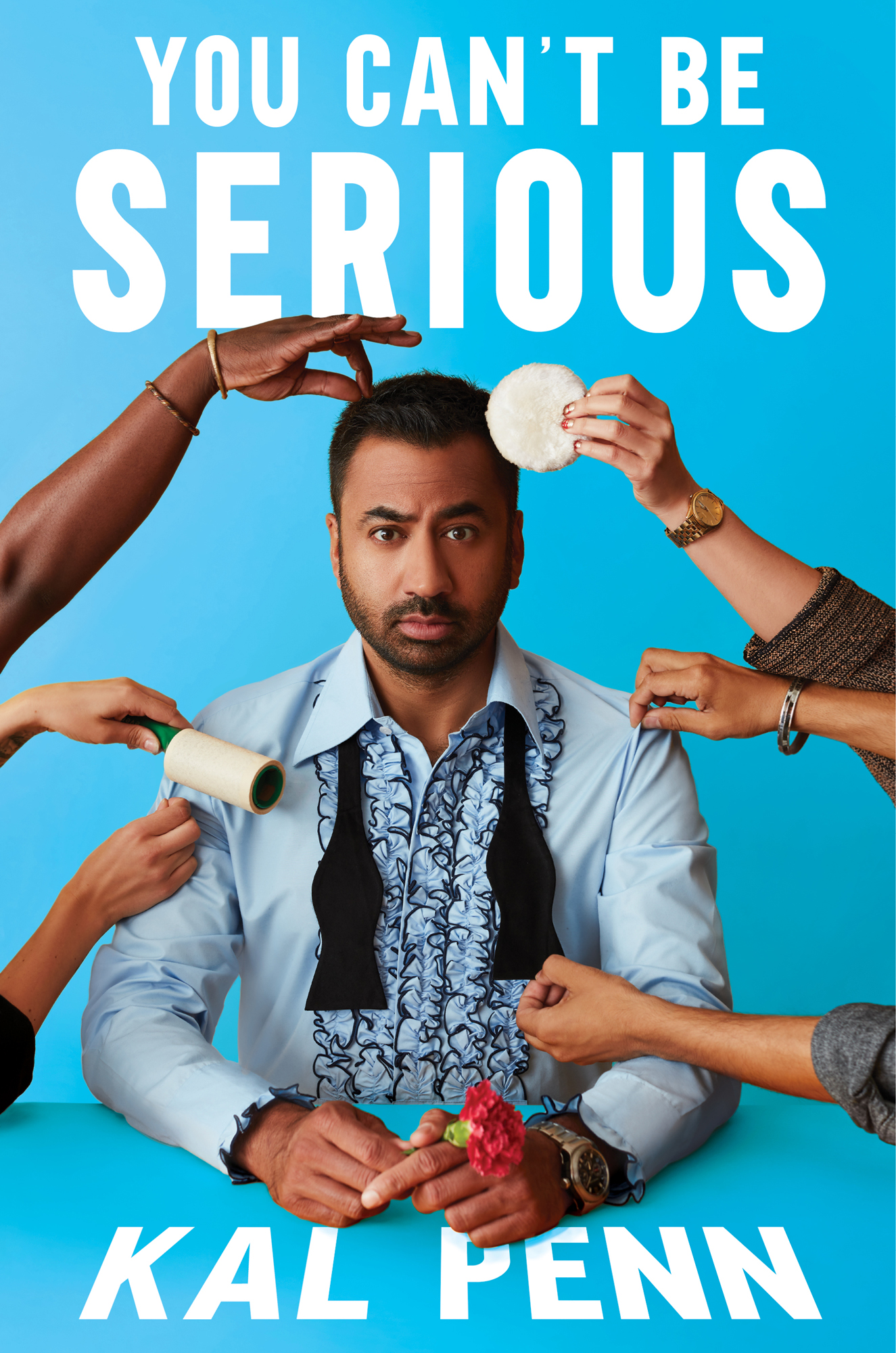Contents
Guide
You Cant Be Serious
Kal Penn
For Piggy, who cant read.
And my parents, who can.
CHAPTER ONE THERE IS NO EXCUSE FOR YOU
I was barely six years old when the fastest, dumbest boy in kindergarten called me the n-word. (Jeez, Kal, what a way to start your book.) It was late in the school yearMay, possibly June. Unseasonably hot for late spring. Miss Witherss entire class was playing freeze tag on the playground, and agile little Randy Finn was it, powering through the muggy air, happily trying to tag the rest of us. This devil child resembled a splintered toothpickskinny, with tiny arms. He came at me with his fingers outstretched, and I took off, resigned that hed catch me quickly. The gravel crunched faster under his feet behind me, his breathing getting louder and louder. This kid was close.
Just as he got within reach, we came up to a jungle gym, a crossroads. Randys skinny knees reminded me of cartoon doorknobs. Time for a cartoon trick! Look! I shouted dramatically while pointing in the direction from where we came, what is that?! Nobody ever falls for this stuff outside of cartoons. Randy stopped. He fell for it. He turned to see what I was talking about. Whats what?
By the time he turned back, I was twenty glorious feet away. Not because I was fast, but because Randy was so very dumb.
Hands on his hips, the kid caught his breath. I got a good, satisfying look at him: such a diminutive frame swimming in the ocean of an oversized T-shirt, trying to make sense of what just happened. As the realization dawned on himthat I just outran him by outsmarting himRandys face contorted. He glared. Anger was building from a place deep inside. I glared back, unafraid. This silent staredown probably lasted five secondsa kindergarten eternity. And Randy broke it with words that forever altered my understanding of the world. You, he said confidently, youre a %@*#!&! Fast, dumb Randy Finn called me the n-word.
Every kid within earshot stood astonished. A white girl named Holly started to cry. I didnt know exactly what the n-word meant, but I quickly understood its gravity from the other kids reactions. An awful feeling erupted in my gutwhatever this word means, this is what I am? And thats bad? The sea of tiny, shocked faces quietly disbanded to the various swing sets and monkey bars.
I didnt tell any adults what happened. I knew I wouldnt get in trouble because I hadnt done anything wrong. I just didnt want to be part of someone elses bad behavior. I could dismiss Randys name-calling since he was so dumb. But he had succeeded in defining me as different in a way I didnt yet understand. Being different wasnt something I wanted to draw attention to. I didnt need to be one of the cool kidsbut I did want to blend in.
First and second grade were uneventful insofar assuper-low bar hereI dont remember getting called any racial slurs. I quietly sat decked out in clothes from Sears and did what was expected of me. By third grade, a Persian kid named Araz moved to our suburban New Jersey town. He was better-dressed, and looked nothing like me, but the teachers suddenly started mixing us both up. This fascinated me. I hadnt yet experienced the repeated behavior Id come to know as all look the sameism, so the fact that teacherswho were the smartest people in my whole wide seven-year-old worldcould get confused by two boys who only shared a vague brownness, fascinated me. It was almost as if Araz and I alone knew what the other kids didntthat the teachers werent actually that smart. And for that I felt kinda bad for them.
Fourth grade was the year I first recognized that I was way more different based on how my brain works rather than anything else, and I remember the first time I felt this way. For show-and-tell one Friday, I brought in a G.I. Joe jeep. It was boxy and green and probably about the length and width of this book. Before I stood in front of the class to talk about my jeep that morning, I had a compulsion to make up a complicated story. I pointed to the four wheels and confidently told the class that each one had tiny suction cups on them (total lie). These special suction cups were activated, I said, by remote control (another lie), so I could drive it anywhereincluding on the ceiling (also a lie! Why was I doing this?!). I staved off any requests to see the jeep in action by announcing that I couldnt make it go upside down right now because it was out of batteries. (True, but only because I had removed them.) The kids thoroughly enjoyed and believed every part of my made-up story. This was my first acting improvisation, and it was both terrifying and exhilarating.
Also in fourth grade, Id find myself zoning out while the teacher was talking. Id stare through the window, thinking up crazy worlds and scenarios. (One of my favorites was the movie Back to the Future, which came out that same year and which I was totally obsessed with. I imagined what itd be like to be a fourth-grade version of Marty and Doc. Instead of a DeLorean, I imagined the monkey bars as my time machine; I could climb on top and pilot it anywhere I wanted to go.) The downside to discovering an overactive imagination was that when report cards went home, my teachers would always write to my parents, letting them know I was the only kid in class with this strange mix: is very conscientious but daydreams a lot.
Being different meant my mind wandered. My imagination came up with endless scenarios throughout the daysometimes to cope with boredom. Other children responded to boredom by acting out, but my first reaction usually wasand today still iscuriosity. If something didnt make sense, I needed to ask why. I always wanted to know more. And if I wasnt able to find the answer, Id just make something up in my head.
In fifth grade our teachers thought that immersion was the best way to teach history, so they took us to a place that would become my favorite field trip destination outside of New York City. Old Sturbridge Village is a living history museum set in 1830s Massachusetts. All the people who work there have to dress, act, and talk like theyre living in that period. They put on olden-days accents and say things like, Hoo-where is Ezekiel? Behold! He has been churning the butter fore the sun shone its warm face this blessed morn. (I offer zero distinction between the speech of 1830s reenactors and, say, pirates.) It was on trips like these that it dawned on me: This was an actual job someone could haveshowing up every day and pretending another moment in time was reality. I fell in love with Old Sturbridge Village because of this suspension of disbelief that the dressed-up employees maintained.
Without fail on these kinds of trips, somewhere around the time when Ezekiel stopped churning butter to show us where his wife, Temperance, keeps chamber pots for whence we must make waste, some bold, dumb kid (usually Randy Finn) would test the museum actors ability to stay in character. Hey Ezekiel, can I use your phone? That Big Mac I ate gave me the runs, I gotta call a doctor! Ezekiel would rebut as best he could, Im afraid I dont understand, pray tell who is Big Mac and hoo-whatever is a phone and a doc-tore? The absurd commitment! I couldnt get enough of it. Temperance would try to distract us kids (and in my opinion won the reenactment Oscar): Poor child! When I find myself with such ailments I must thrice pare thin the yellow rind of an orange, unto which I will mix an amount of bitter brandy as prescribed by the

